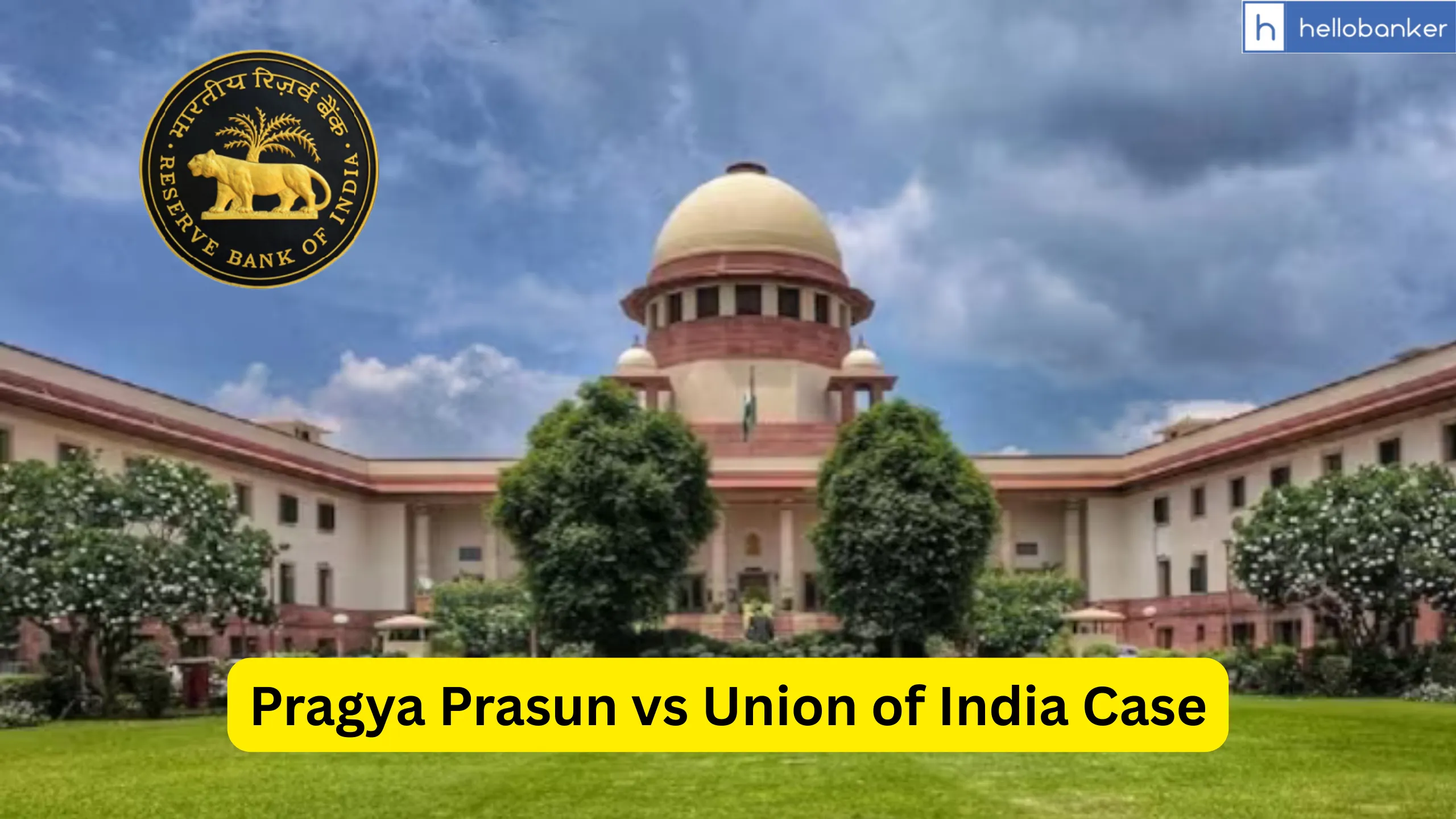The Reserve Bank of India (RBI) has issued directions to all banks, non-banking financial companies (NBFCs) including housing finance companies, all-India financial institutions, credit information companies, payment system providers, and authorised foreign exchange dealers to ensure compliance with recent Supreme Court order related to Pragya Prasun Case.
RBI has referred to the Supreme Court’s ruling on April 30, 2025, in two cases — Pragya Prasun & Ors. vs Union of India (W.P.(C) 289 of 2024) and Amar Jain vs Union of India & Ors. (W.P.(C) 49 of 2025).
This decision comes after a long legal fight led by Pragya Prasun, an acid attack survivor. She faced difficulties while trying to open a bank account and buy a SIM card due to her inability to blink.
In July 2023, Pragya Prasun went to an ICICI Bank branch to open a bank account. However, she couldn’t complete the Digital KYC (Know Your Customer) process as she could not blink her eyes in front of camera.
The bank officials insisted that she must blink her eyes in front of the camera to prove her “liveness” which is mandatory under the Reserve Bank of India’s KYC rules.
Due to the severe injuries from the acid attack, Pragya had lost the ability to blink. This meant she was denied the right to open a bank account in her own name.
Pragya raised the issue on social media. The matter caught public attention and led to widespread outrage. Soon, a bank official contacted her and said they could make an exception in her case. But Pragya wasn’t happy.
She realized that many others like her were also facing similar challenges. She decided to go to court not just for herself but for all those who are excluded from the digital system due to disability.
Pragya also faced problems when she tried to buy a SIM card. Again, she was asked to blink her eyes for the e-KYC verification.
Pragya’s petition was joined with other similar cases where people, especially those with visual disabilities or facial injuries, were unable to complete the KYC process due to system limitations.
Finally, the Supreme Court delivered a judgment in favor of victims like her. The court said that digital access is a basic part of living a full and dignified life, especially in today’s technology-driven world.
The Supreme Court said:
“Right to digital access is an intrinsic component of right to life under Article 21”. “We have held there is need for change in KYC processes for the disabled. We have given 20 directions. The petitioners who suffer from acid attacks and blindness have been unable to complete KYC process… due to facial disfigurements. Constitutional provisions confer a statutory right on the petitioners to be accommodated in the KYC process. It is imperative that digital KYC guidelines are revised with the accessibility code. In the contemporary era, where economic opportunities etc. is through digital (access) Article 21 needs to be re-interpreted in light of such technology and the digital divide increases”.
The Supreme Court reminded the government that it is their responsibility to build a digital ecosystem that includes everyone – especially the weak and vulnerable.
The Supreme has ordered that all government websites, educational platforms, and online financial services must be designed in a way that everyone can use them – regardless of disability or physical appearance.
The Supreme Court has given following orders to RBI:
RBI shall issue guidelines to all regulated entities to adopt and incorporate alternative modes for verifying the “liveness” or capturing a “live photograph” of the customers, as mandated under Annex-I of the MD on KYC, 2016, for the purpose of conducting Digital KYC / e-KYC beyond the traditional “blinking of eyes” to ensure inclusivity and user-convenience.
RBI shall issue appropriate clarifications / guidelines / directions to all regulated entities that they have Customer Due Diligence (CDD) and on-boarding of new customers can be done using the video-based KYC process or the “V-CIP” procedure, in accordance with the provisions of the MD on KYC, 2016, wherein blinking of the eyes is not a mandatory requirement.
RBI shall amend the MD on KYC so as to enhance the implementation of the ‘OTP based e-KYC authentication’ (face-to-face) to customers.
Download Pragya Prasun vs Union of India Court Order
